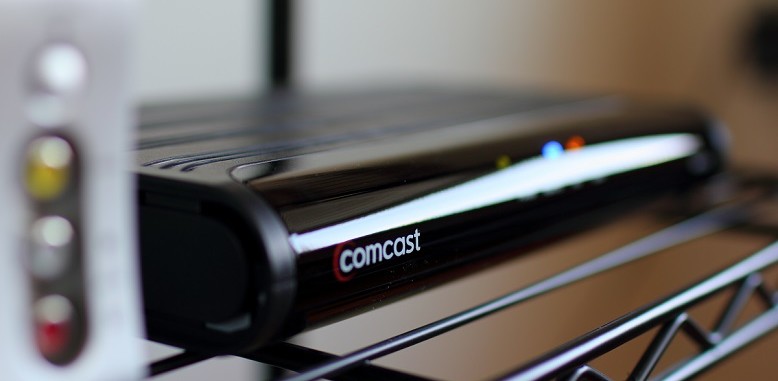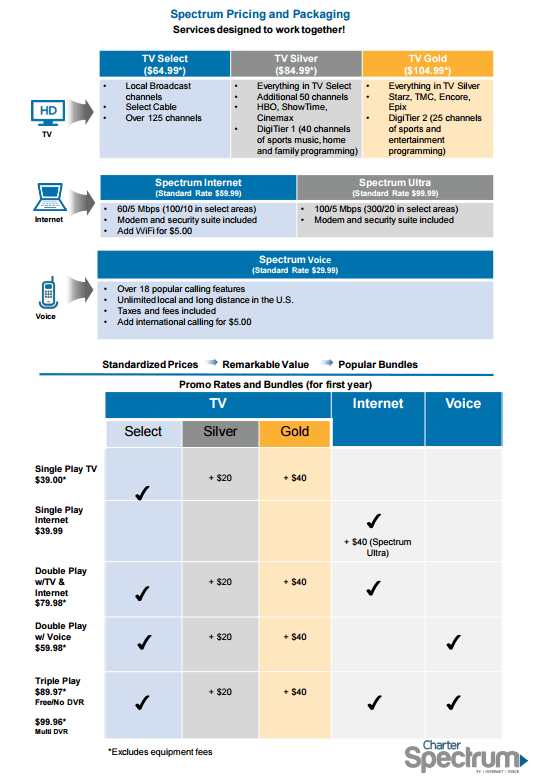 Arris will manufacture the next generation of set-top boxes for Charter Communications, supporting hybrid IP/QAM video and the legacy technology still in place at Charter-acquired Time Warner Cable and Bright House Networks.
Arris will manufacture the next generation of set-top boxes for Charter Communications, supporting hybrid IP/QAM video and the legacy technology still in place at Charter-acquired Time Warner Cable and Bright House Networks.
WorldBox 2.0 will support both a traditional and cloud-based user interface, as well as new content options and video features that could eventually bring a cloud-based DVR service for Charter customers. Charter is dealing with at least three different cable system architectures — its own network and those of its two recent acquisitions: Bright House and Time Warner Cable. Charter will be expanding its current downloadable conditional access (DCAS) capability to both those cable companies, expanding Digital Rights Management (DRM) to cable television channels. Time Warner and Bright House reportedly rely on an older CAS system.
Charter is strengthening video security to remotely switch on and off cable TV service for new/disconnecting customers without having to send a truck to the customer’s home.
“While Charter is focused on providing a secure video product on all devices, WorldBox 2.0 provides the same advanced video experience consumers are demanding on traditional television sets, and gives Charter the flexibility to deploy a single platform across our entire expanded network,” said Jim Blackley, Charter executive vice president of engineering and IT, in a statement. “Our ongoing work with Arris – in developing this platform, including the downloadable security component – and the establishment of the warrant program, speaks to the strength of our long-standing relationship and the value of ARRIS’s expertise in large-scale, next-generation deployments.”
Charter’s appreciation for Arris is reflected in an agreement the cable company has with the set-top box vendor to buy up to six million shares of Arris stock over the next 24 months, depending on how much business Charter provides the company.
Charter’s WorldBox 1.0 originally debuted in 2015 with the assistance of Cisco, but Charter has clearly shifted towards Arris. There has been considerable consolidation in the set-top box marketplace over the last year. Cisco sold its cable equipment business to Technicolor and Arris has grown larger after acquiring its competitor Pace.


 Subscribe
Subscribe
 The Berkshire Eagle covered an open meeting held last night at the Great Barrington Firehouse, where residents and officials wondered why they could only lease a cable box from Charter, and
The Berkshire Eagle covered an open meeting held last night at the Great Barrington Firehouse, where residents and officials wondered why they could only lease a cable box from Charter, and 
 “Enabling consumers to use apps instead of set-top boxes may be a valid goal, but the marketplace is already delivering on the goal without overreaching government intervention. The FCC’s mandate threatens to bog down with regulations and bureaucracy the entire TV app market that consumers are increasingly looking to for innovation, choice and competition.”
“Enabling consumers to use apps instead of set-top boxes may be a valid goal, but the marketplace is already delivering on the goal without overreaching government intervention. The FCC’s mandate threatens to bog down with regulations and bureaucracy the entire TV app market that consumers are increasingly looking to for innovation, choice and competition.”
 Thanks to one of our readers who also happens to be a TWC employee, here is the latest update to Charter/Spectrum’s list of first year promotions, taking effect in California and Texas (9/20) this month.
Thanks to one of our readers who also happens to be a TWC employee, here is the latest update to Charter/Spectrum’s list of first year promotions, taking effect in California and Texas (9/20) this month.
